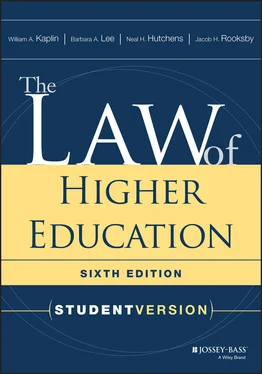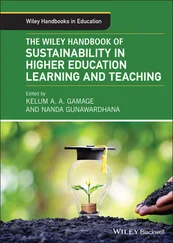1 Regarding an introduction to the American legal system, including the system of federal and state courts, see Margaret Johns and Rex Perschbacher, The United States Legal System: An Introduction (4th ed., Carolina Academic Press, 2017); E. Allan Farnsworth, An Introduction to the Legal System of the United States (4th ed., Oxford University Press, 2010); Stephen Elias, Legal Research: How to Find and Understand the Law (18th ed., Nolo, 2018), Chapters 3and 7; and Steven Burton, An Introduction to Law and Legal Reasoning (3rd ed., Aspen Publishers, 2007), Chapters 6– 9.
2 Regarding the legal profession and the role of lawyers, see Johns and Perschbacher, above, Chapter 2.
3 Regarding the basics of legal research and analysis, see AALL Legal Information Service to the Public, How to Research a Legal Problem: A Guide for Non-Lawyers (American Association of Law Libraries, available at https://www.aallnet.org/wp-content/uploads/2018/01/HowToResearchLegalProblemFinal_2014.pdf; Burton, above, Introduction and Chapters 1– 5; Elias, above; and Christopher Wren and Jill Wren, The Legal Research Manual (2d ed., Adams & Ambrose, 1999).
4 For definitions and explanations of legal terms, see D. Mellinkoff, Dictionary of American Legal Usage (West, 1992); Elias and Levinkind, above, Appendix C, and Wren and Wren, above, Appendices L and M.
1 1For resources on elementary/secondary education, see Victoria Dodd, Practical Education Law for the Twenty-First Century, (2d ed., Carolina Academic Press, 2010); Ronna Greff Schneider, Education Law: First Amendment, Due Process and Discrimination Litigation (Thomson/West, 2004); and William Valente & Christina Valente, Law in the Schools (6th ed., Prentice-Hall, 2004).
2 2Faculty members also have legal relationships with other faculty members, as students do with other students, and as officers, administrators, and staff members do with other officers, administrators, and staff. These additional secondary relationships are not depicted in Figure I.3. For an illustrative discussion of student-to-student relationships, see Section 7.1.5 of this book.
PART ONE PERSPECTIVES AND FOUNDATIONS
1 Overview of Higher Education Law
Chapter 1 provides background information on the reach of the law into virtually every aspect of higher education and develops the foundational principles and conceptual distinctions that have guided the law's ever-expanding reach. After brief overviews of how the law's impact on academia has expanded and the body of higher education law has evolved since the 1950s, the chapter explains how decisions concerning colleges and universities, and their personnel and students, are made ( governance). The chapter then reviews the sources of higher education law, distinguishing between those from outside the institution (such as constitutions, statutes, and common law) and those from within the institution (such as policies and contracts). Differences in how the law treats public institutions versus private institutions are examined, as is the state action doctrine (which serves to require public institutions, but usually not private institutions, to comply with the individual rights guarantees of the U.S. Constitution). Differences in how the law treats private religious, versus private secular, institutions are also addressed. The chapter then concludes with an examination of the relationship between law and policy (institutional policy as well as public policy), and legal counsel's role in advising the institution on the development and implementation of policy .
Section 1.1. How Far the Law Reaches and How Loudly It Speaks
Law's presence on the campus and its impact on the daily affairs of postsecondary institutions are pervasive and inescapable. Litigation and government regulation expose colleges and universities to jury trials and large monetary damage awards, to court injunctions affecting institutions' internal affairs, to government agency compliance investigations, hearings, and fines, and even to criminal prosecutions against administrative officers, faculty members, and students.
Many factors have contributed over the years to the development of this legalistic and litigious environment. Students' and parents' expectations have increased, spurred in part by increases in tuition and fees and in part by society's consumer orientation and marketing efforts by colleges and universities to attract students. Higher education institutions have also served as epicenters of social and political division occurring in the larger society on a range of issues. The greater availability of data that measures and compares institutions, and greater political savvy among students and faculty, has led to more sophisticated demands on institutions.
In addition, advocacy groups have used litigation against institutions as the means to assert faculty and student claims—and applicant claims as well, in suits concerning affirmative action 1 in admissions and employment. Contemporary examples of such groups include the Foundation for Individual Rights in Education (FIRE) ( https://www.thefire.org); Students for Academic Freedom (see Section 7.1.4); Young America's Foundation ( https://www.yaf.org); the Center for Law and Religious Freedom ( https://www.clsnet.org/center/about), a project of the Christian Legal Society; the Student Press Law Center ( https://splc.org); and the Center for Individual Rights ( https://www.cir-usa.org), which has been particularly active in the cases on affirmative action in admissions. More traditional examples of advocacy groups include the American Civil Liberties Union (ACLU) ( https://www.aclu.org) and the NAACP Legal Defense and Educational Fund, Inc. ( https://www.naacpldf.org). National higher education associations also sometimes become involved in advocacy (in court or in legislative forums) on behalf of their members. The American Council on Education ( https://www.acenet.edu/Pages/default.aspx), whose members are institutions, is one example; the American Association of University Professors (AAUP), whose members are individual faculty members, is another example ( https://www.aaup.org; see Section 6.1.3 of this book).
In this environment, law is an indispensable consideration, whether one is responding to campus disputes, planning to avoid future disputes, or crafting an institution's policies and priorities. Institutions have responded by expanding their legal staffs and outside counsel relationships and by increasing the numbers of administrators in legally sensitive positions. As this trend has continued, more and more questions of educational policy have become converted into legal questions as well (see Section 1.7). Law and litigation have extended into every corner of campus activity. 2
There are many striking examples of cutting-edge (and sometimes just wrong-headed) cases that have attracted considerable attention in higher education circles or have had a substantial impact on higher education. Students have sued their institutions for damages after being accused of plagiarism or cheating or after being penalized for improper use of a campus computer network; controversies over campus free speech have resulted in legal challenges involving student speech rights; objecting students have sued over mandatory student fee allocations; victims of harassment have sued their institutions and professors alleged to be harassers; students found in violation of institutional sexual misconduct policies have alleged violations of their due process or contractual rights; student athletes have sought injunctions ordering their institutions or athletic conferences to grant or reinstate eligibility for intercollegiate sports; student athletes or former athletes have also sued to be compensated for their athletic participation or the use of their image in marketing and merchandising; students with disabilities have filed suits against their institutions or state rehabilitation agencies, seeking accommodations to support their education; students who have been victims of violence have sued their institutions for alleged failures of campus security; hazing victims have sued fraternities, fraternity members, and institutions; parents have sued administrators and institutions after students have committed suicide; and former students involved in bankruptcy proceedings have sought judicial discharge of student loan debts owed to institutions. Disappointed students have challenged their grades in court, such as the student who filed suit claiming that being required to type led to his receiving a lower grade because he typed more slowly than other students, or the student who fell asleep during an exam and claimed that she was unfairly penalized on the basis of a disability. A student who received an “A” grade in an online class claimed in a lawsuit that a professor's removal of a comment thread from a discussion board for being non-germane to class discussion harmed her chances for future employment at the institution. Students and others supporting animal rights have used lawsuits (and civil disobedience as well) to pressure research laboratories to reduce or eliminate the use of animals. And another student, injured in a Jell-O wrestling event at a college residence hall party that he himself had organized, attempted to pin liability on his university.
Читать дальше












